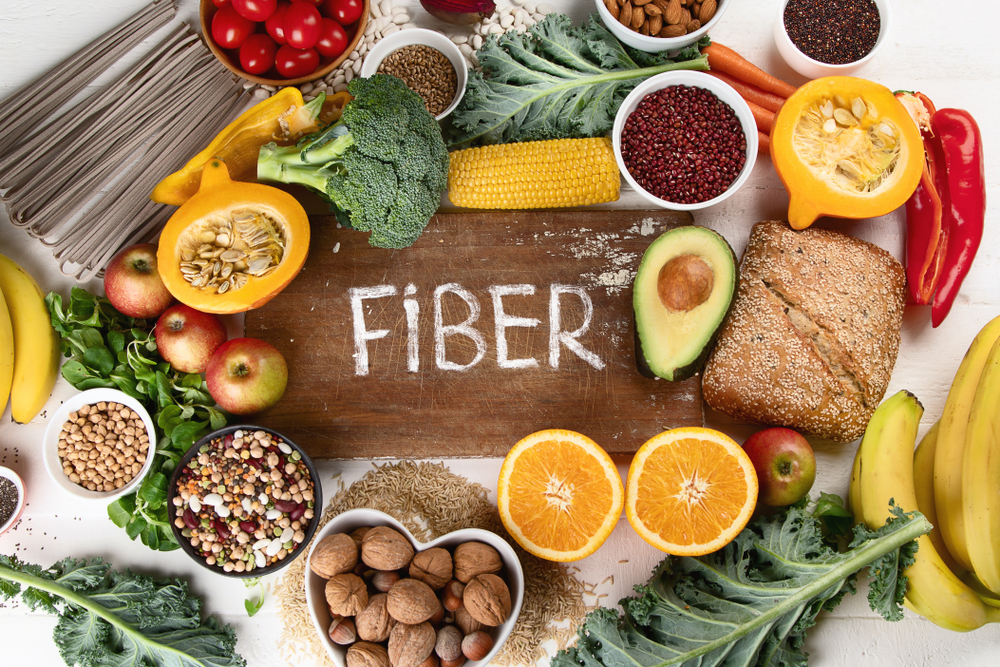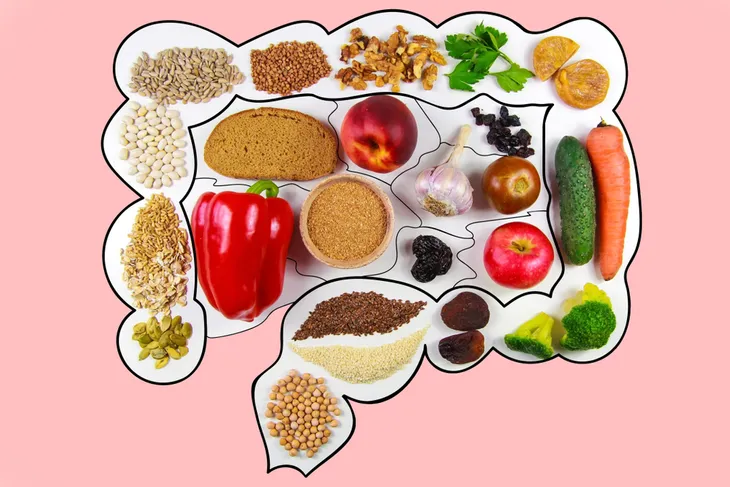You probably see some foods in the store advertised as being “high in fiber,” and you assume that’s a good thing (or else they probably wouldn’t bother saying it). But have you ever really stopped to consider all the health benefits of consuming it? For example, you’ve likely heard that fiber is associated with “staying regular,” but there’s more to it than that.
There are actually two types of fiber, soluble and insoluble (some foods contain both) – and they each offer unique benefits. Let’s take a closer look at all of them, and why you should be incorporating more into your diet…
Promotes More Regular Bowel Movements
Let’s get this one out of the way first – because it’s often the only health benefit people think of when they think fiber. While high-fiber food can help prevent constipation and diarrhea, while also helping you visit the bathroom in regular intervals, there’s some fairly simple science behind it.
The Mayo Clinic explains that fiber increases the volume of your stool, while also making it softer and easier to pass. Meanwhile, it adds that if you experience “loose, watery stools,” the fiber can help add bulk to it as it absorbs a lot of water.
Helps ‘Good’ Gut Bacteria Flourish
Your digestive system contains countless bacteria – in fact, Healthline notes the bacteria that call your body home outnumber body cells by 10 to 1. Meanwhile, it adds about 500-different types live in the intestines, and while you might think that sounds bad, “there is a mutually beneficial relationship between you and some of the bacteria that live in your digestive system.”
There are a number of health reasons to have a healthy gut flora, and there have also been some links to mental health and the gut as well. Because intestinal bacteria have the enzymes to break down fiber, they help to feed these “good” bacteria and encourage more growth as a prebiotic, it adds.
Assists in Weight Loss and Regulation
If you have a goal to lose weight or a doctor has advised it, then fiber might be your friend. Eating Well explains, “even if increasing your fiber intake is the only dietary change you make, you’ll shed pounds.” It cites a study of dieters who were instructed to consume 30-grams of fiber per day lost a “significant” amount of weight – comparable to a more calorie-limiting diet, it adds.
Meanwhile, once you’ve achieved that target weight, fiber can help you maintain it by helping prevent pounds from packing back on, adds the source. It cites another study that suggests obese participants consumed an average of about 1-gram less of fiber daily compared to those at “normal” weight. Other sources note fiber-rich foods help you feel full longer, curbing the temptation to overeat.
Aids With Cholesterol Control
Your doctor may have given you a stern talk for your high cholesterol, and maybe even prescribed some medication to help control it. But while you should follow your doctor’s orders, you should also know that consuming fiber-rich foods such as beans, oats, and flaxseed can cut your “bad” cholesterol (known as LDL), and thus the overall amount of it, says the Mayo Clinic.
Cleveland Clinic explains more about how this works. It notes that soluble fiber can lower cholesterol levels because it binds to bile made of cholesterol (among other things) that is manufactured in the liver, thus “taking it out of the body.” Lowering cholesterol is an important way to avoid heart disease, adds the clinic.
Drops Type 2 Diabetes Risk
Fiber can help avoid sudden spikes in blood sugar that is caused by certain foods, says the Harvard T.H. Chan School of Public Health. It cites Harvard studies involving female nurses and male health professionals that found a diet low in fiber and filled with high-glycemic index foods more than doubled the risk of developing type 2 diabetes compared to a diet that was essentially the opposite.
It notes that a high amount of cereal fiber in particular has been linked through the studies to a lower diabetes risk. Meanwhile, the source says other studies including the Black Women’s Health Study and the European Prospective Investigation Into Cancer and Nutrition (EPIC-Potsdam study) suggested the same results.
Reduces The Risk of Some Cancers
Aside from preventing diabetes, fiber intake might also help you avoid cancer too, according to Eating Well. The source cites a study that suggests that for every 10-grams of fiber you consume, there’s a corresponding drop in risk – 10-percent lower for colorectal cancer, and 5-percent less for breast cancer.
While the fiber may help shield you from these cancers on their own, it has the added benefit of being found in fruits and vegetables that contain antioxidants that are also linked to a lower cancer risk, adds the source. For reference, fruits highest in fiber include raspberries, apples (with peels), oranges, strawberries and bananas.
Lowers Risk of Diverticulitis
You might not be familiar with this disease, but about 35-percent of people aged 50-and younger (that number is 58-percent for those older than 60) have it according to the National Institute of Diabetes and Digestive and Kidney Diseases. It causes inflammation of the colon that can lead to bleeding and prolonged pain.
The Harvard T.H. Chan School of Public Health notes diverticulitis is one of the “most common age-related disorders of the colon in Western society.” It cites a long-term follow-up study of male health professionals that suggests regularly consuming dietary fiber (mainly the insoluble type) results in a significantly lower chance of developing diverticular disease.










